Author Archive
Posted on: July 6th, 2025 by St. Stephens Downsview
Introduction
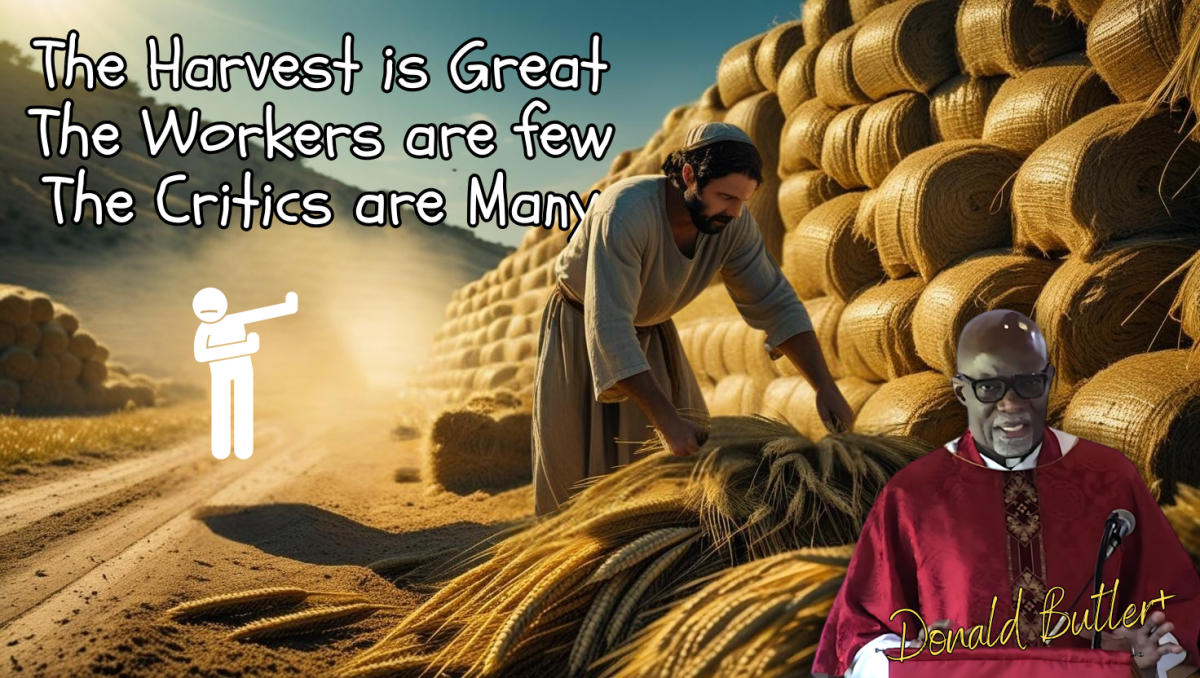 Today’s reflection stems from a pivotal moment captured in St. Luke’s Gospel, chapter 10. We are drawn into the scene where Jesus appoints and sends out his disciples, marking a significant step in his ministry. This is more than just a historical account; it's a narrative that calls us into action and challenges us to understand our role as disciples in today’s world.
Today’s reflection stems from a pivotal moment captured in St. Luke’s Gospel, chapter 10. We are drawn into the scene where Jesus appoints and sends out his disciples, marking a significant step in his ministry. This is more than just a historical account; it's a narrative that calls us into action and challenges us to understand our role as disciples in today’s world.
The Divine Calling
Jesus appoints, calls, and sends. This action highlights that ministry is not just our idea. It's Christ's work, and we are merely his instruments. This divine call is compelling and rooted in Jesus’ compassion for those who are hurting and restless. Jesus desires for everyone to know the nearness of God's kingdom. His invitation is not just for the select few but for ordinary individuals ready to serve.
Our Role in the Harvest
Jesus sees a plentiful harvest and few laborers. He encourages prayer for more workers to join this mission. We often perceive the church as dwindling, yet there is a world of people yearning for the message of salvation. We are sent into everyday spaces—our families, neighborhoods, workplaces, and schools—to proclaim the good news. We are called to extend a simple invitation: “Join me for worship, share the fellowship, come and hear the message.”
Responding with Courage and Trust
Jesus prepares his disciples for challenges, likening them to lambs among wolves. He emphasizes stepping out in faith, depending less on worldly securities, and more on God’s provision. We are reminded that we do not embark on this mission alone but as part of a community, supporting and uplifting one another.
Handling Rejection with Grace
Rejection is a reality we may face in this ministry. Jesus advises his disciples to shake the dust off their feet and move on when not welcomed. This reflects a respect for others’ freedom to choose while we remain steadfast in delivering the message.
Rejoicing in Belonging, Not Accomplishment
The disciples return joyful from their journey, amazed by the spiritual victories. Yet, Jesus redirects their joy from accomplishment to the assurance of belonging to God. Our worth is not in our successes but in our relationship with God, being loved and held by Him.
Conclusion: Embracing the Call Today
Jesus continues to send us into a world hungry for hope and healing. He calls us to travel lightly, trust deeply, and find joy not in achievements but in our identity as God’s children. As we meditate on this passage, let us examine our hearts: How are we being called to participate in Christ's mission? What burdens must we lay down to trust Him fully? May we respond to His call, live authentically, and allow others to see the nearness of God’s kingdom through us.
May you be blessed as you embrace this calling and become instruments of peace and love in the world. Amen.
Posted on: June 29th, 2025 by St. Stephens Downsview
By Fr Donald Butler
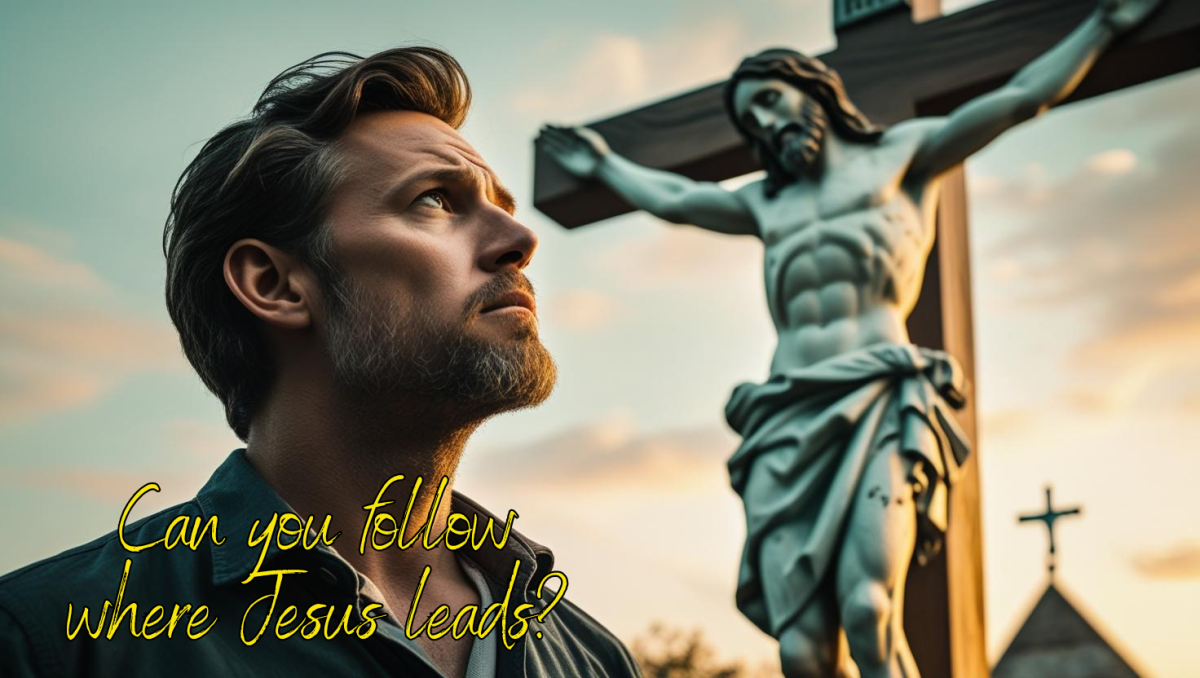 It's a pleasure to be here with so many familiar faces I've met over the years during my ministry in Toronto. This community holds a special place in my heart, and as we embark on this journey together, I pray for God's blessing as you discern your next incumbent.
It's a pleasure to be here with so many familiar faces I've met over the years during my ministry in Toronto. This community holds a special place in my heart, and as we embark on this journey together, I pray for God's blessing as you discern your next incumbent.
A Pivotal Moment in Our Journey
Today, I want us to pause and reflect on the gospel reading from St. Luke's Gospel, chapter nine, verses 51 to 62. We find Jesus at a pivotal moment in his ministry, a time of transition and change. This moment was significant, leading to something rewarding and exceptional, not only for those during His time but also for us today.
When Jesus turned toward Jerusalem, the spiritual center, He faced a path of suffering and death but ultimately one of resurrection and glory. As we consider our own periods of pivot, I ask you: what do you want to achieve? Where will you turn your head? What is it that you are searching for?
Followers with Zest: The Disciples' Zeal
In this passage, Jesus interacts with two groups. The first is His disciples, such as James and John, who were fiercely loyal. When a Samaritan town rejected Jesus, they wanted to call down fire in retaliation. But Jesus rebuked them, teaching that His kingdom is one of love, not violence. The willingness of the disciples to learn from their mistakes serves as an example for us all. No matter where we stand in our spiritual journey, Jesus is there to guide us.
A Call to Total Commitment
The narrative shifts when three individuals either declare or are invited to follow Jesus. The first individual expresses eagerness to follow Jesus, but Jesus responds that even animals have homes, emphasizing the discomfort and uncertainty they must be willing to endure. This reminds us that to truly embrace Jesus, we must be prepared for unpredictability.
The second person wished to bury his father before following Jesus, to which Jesus responded, "Let the dead bury their own dead." This may seem harsh, but during that time, burial could be delayed indefinitely. Jesus emphasized the urgency and immediacy in the call to follow Him.
Finally, a third person wanted to say goodbye before committing to Jesus. But Jesus’ response highlights that true commitment must prioritize moving forward without looking back.
Two Paths: Commitment or Hesitation
We are presented with a choice in this scripture: a path of wholehearted commitment, passion, and willingness to follow Jesus without conditions, or a path cluttered with excuses and divided attention. Jesus isn't calling perfect people; He’s calling committed ones, those ready to walk this path with all of their imperfections.
Walking with Jesus Today
In our modern world, following Jesus means building a relationship rooted in trust and faith amidst uncertainty. It means serving others, reflecting His love in our communities, and allowing His teachings to guide our actions. The challenges we encounter can test our faith, but perseverance leads to a deeper understanding of His purpose for us.
The choice is ours to embrace a journey marked by devotion, even as we stumble and learn. Jesus calls us not tomorrow, but now—to walk with Him imperfect as we are. May we choose to serve Him with unwavering faith and undeterred spirit.
Amen.
Posted on: June 22nd, 2025 by St. Stephens Downsview
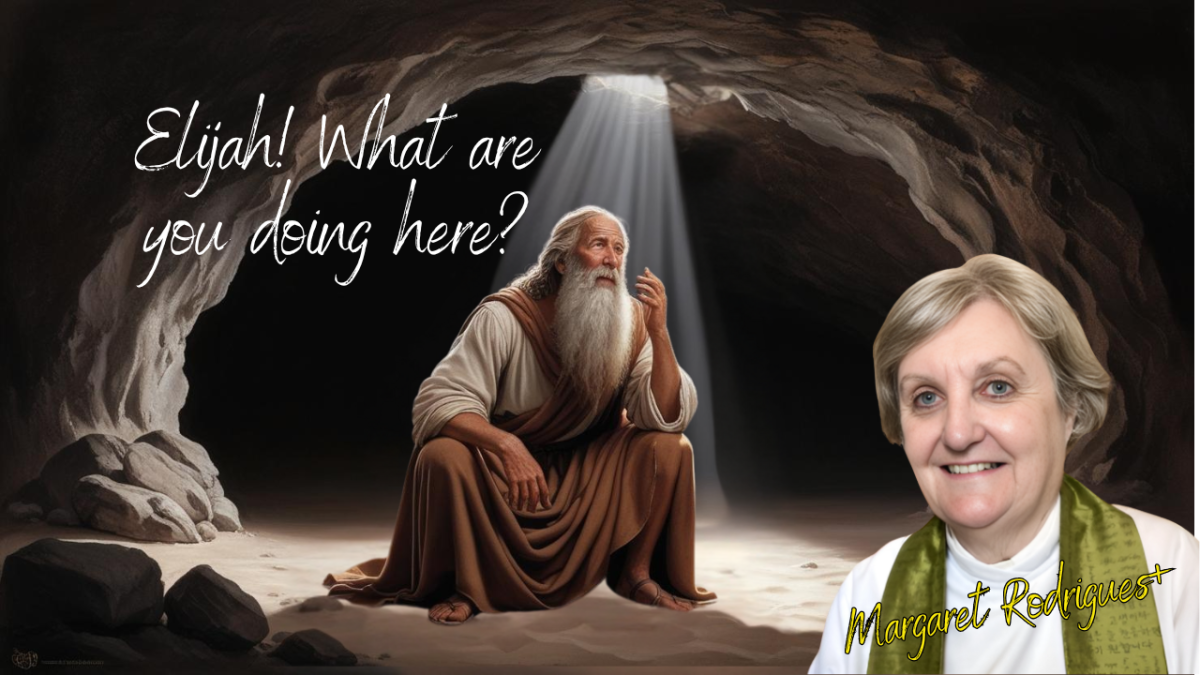 As we reflect on the readings for the second Sunday in Pentecost, we are presented with an inspiring overview of how Jesus guides us through life's toughest challenges. These challenges are brought to light through four distinct yet profound situations: facing hostility, enduring ridicule for faith, grappling with mental illness, and experiencing rejection due to minority gender identity. These reflections aim to unravel Jesus's responses and guidance on navigating these adversities.
As we reflect on the readings for the second Sunday in Pentecost, we are presented with an inspiring overview of how Jesus guides us through life's toughest challenges. These challenges are brought to light through four distinct yet profound situations: facing hostility, enduring ridicule for faith, grappling with mental illness, and experiencing rejection due to minority gender identity. These reflections aim to unravel Jesus's responses and guidance on navigating these adversities.
Facing Hostility and Fear: Elijah’s Story
One of my personal favorite Bible stories is about Elijah, who found himself isolated and fearful on Mount Horeb. This narrative resonates deeply with me, particularly as I have recounted during significant moments of my spiritual journey, such as my ordination. It speaks of divine purpose, affirming that even in fear, God’s plans propel us forward into transformative missions.
Ridicule and Faith: Hope in the Psalms
We often encounter skepticism about our faith, sometimes ridiculed for our beliefs, much like the psalmist laments in Psalms 42 and 43. However, these writings remind us to steadfastly hope in God. The promise of praise and divine help is ever-present, fortifying our spirits amidst doubt and taunting.
Addressing Mental Illness: Compassion in Action
The Gospel of Luke portrays an encounter with a man believed to be possessed by demons—a reflection of how mental illness was perceived in Jesus's time. Jesus’s actions were transformative, restoring the man’s dignity and sanity, illustrating compassion and understanding that inspire today’s caregivers dedicated to mental health.
Embracing All Genders: A Call for Inclusion
As we observe Pride Month, the message from Galatians stands salient—calling us to recognize the unity in Christ that transcends socio-cultural boundaries, including gender. Despite opposition within segments of the Church, this scriptural assurance affirms the dignity and identity of our LGBTQ siblings.
Conclusion: Timeless Principles of Compassion
The teachings of Jesus endure as a beacon of compassion and inclusive understanding. While societal contexts have shifted, His wisdom remains crucial, guiding us towards acceptance and courage. May these reflections offer blessings and insight throughout this pride month and beyond.
Posted on: June 8th, 2025 by St. Stephens Downsview
 As I stand before you today, surrounded by familiar faces and a community that has become like family, I find it both a privilege and a bittersweet moment to bid farewell to Father Theodore Hunt and his family. Over the past eight years, Father Hunt has been an integral part of our lives at the Church of St. Stephen Downsview. His wisdom, humor, and dedication have touched us all deeply.
As I stand before you today, surrounded by familiar faces and a community that has become like family, I find it both a privilege and a bittersweet moment to bid farewell to Father Theodore Hunt and his family. Over the past eight years, Father Hunt has been an integral part of our lives at the Church of St. Stephen Downsview. His wisdom, humor, and dedication have touched us all deeply.
Honoring Father Theodore and His Family
Our journey today begins with reflections from our beloved Sunday School, led by the youthful voices who hold the future of our faith. They shared heartfelt messages of gratitude, underscoring the joy and lessons imbibed from Father Hunt. We are reminded that while paths may diverge, God's love remains our guide.
Throughout the day, we heard from various community members who share Father Hunt's passion for fostering interpersonal relationships. Brother David from the Sierra Leonean community and Ms. Cheryl Prescod from the Black Creek Community Health Center offered words of thanks, highlighting Father Hunt's seamless integration into our diverse community, transforming mere acquaintances into familial bonds.
The Church Leadership's Tribute
Representatives from the wardens and other ministries shared their appreciation for Father Hunt. They spoke of his unwavering commitment to nurturing our parish, his ability to inspire through his sermons, and the personal touch he brought to every aspect of church life. Father Hunt didn't just minister to us; he walked with us, celebrating joys and offering solace in times of need.
A Musical Farewell
The choir and music ministry underscored the deep impact Father Hunt has had on us. His unique ability to lead without a glance at the hymn sheet and his incredible memory are matched only by his authentic and heartfelt participation in every service.
Personal Reflections
As this event unfolded, I stood as a witness to Father Hunt's influence, echoing the sentiments expressed throughout the day. Relationships built here are real and lasting, and as Father Hunt transitions to a new community at Christchurch, Brampton, his presence will be missed greatly.
A Final Blessing and Gratitude
In conclusion, Father Hunt blessed us with words of gratitude, reminding us that relationships formed here are genuine. As we say farewell, we do so knowing that his time with us has not only been a chapter in his life but also an indelible mark on ours. It is with heartfelt thanks and blessings that we let him go, praying for continued success and divine guidance as he embarks on this new journey.
Let us continue to love and serve one another as we have been taught, welcoming new members with open arms, and witnessing the transformative power of faith and community.
Posted on: June 1st, 2025 by St. Stephens Downsview
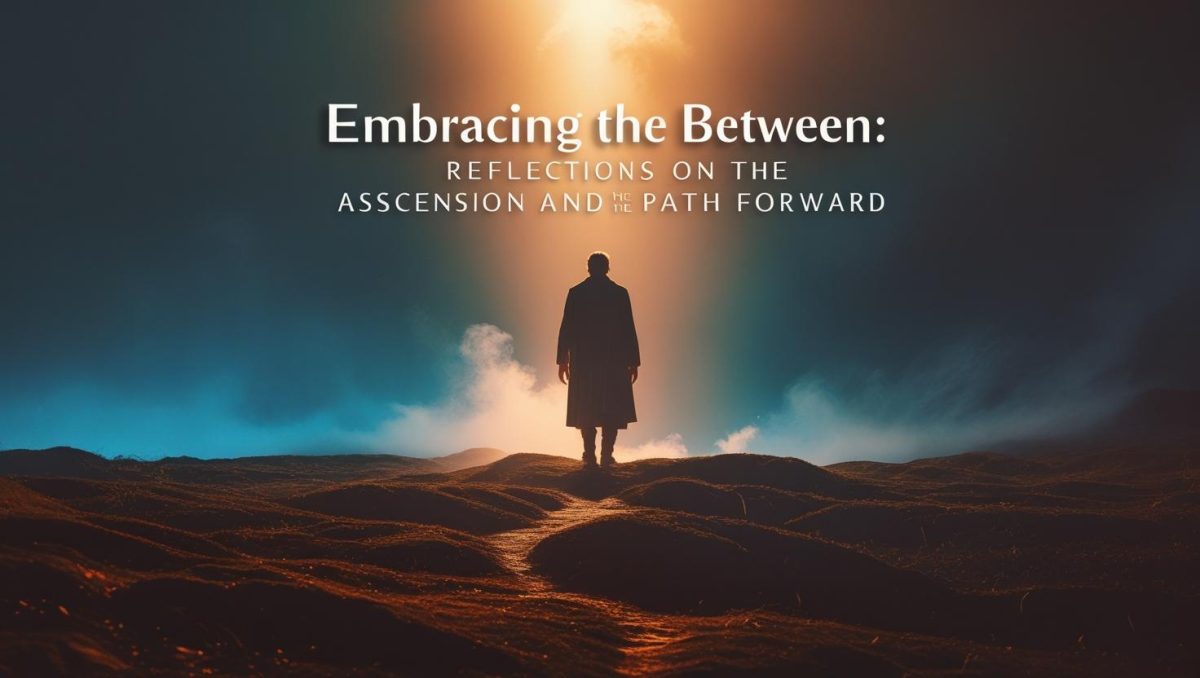 As we gather to mark the occasion of the Ascension, our reflections find anchor in Acts 1:6, where the disciples ask Jesus if now is the time He will restore the kingdom to Israel.
As we gather to mark the occasion of the Ascension, our reflections find anchor in Acts 1:6, where the disciples ask Jesus if now is the time He will restore the kingdom to Israel.
The Significance of the Ascension
Today, we commemorate Jesus Christ's ascension, where He, in the presence of His disciples, transcended bodily to assume His rightful place at the Father's right hand. Through His death, He conquered death itself, absolving the world's sins. What Jesus accomplished is for the salvation of all creation, impacting every life regardless of individual beliefs about Him as Savior and Lord. Paul speaks to this enduring rule in his letters to the Corinthians: "He must reign until He has put all His enemies under His feet; the last enemy to be destroyed is death."
Living in the 'In-Between'
We exist in a period 'between'—after Christ's ascension and before His final return. It's a time marked by His decisive victory over evil, sin, and death on the cross, transforming evil and sin's ultimate power into fleeting discomforts. Reflecting on the early disciples’ experience post-resurrection, we relate to their moments of questioning, "What has truly changed?" when the world continues much as before. Yet, Jesus's promise of the Holy Spirit offers new power and purpose—to be His witnesses not just in close proximity but to the ends of the earth.
The Call to Witness
Jesus's message to His disciples emphasized the need to focus not on the timing of God’s final reign but rather on witnessing His salvation to the world. Each step, starting from Jerusalem rippling outward, reflects this call to action. Jesus said, "I am sending upon you what my Father promised," asserting His divine authority and gifts of the Spirit, emphasizing our roles as His 'sent ones'—making known God’s plan through our lives and testimonies.
Mission in the Present Age
In this interim between Ascension and Return, likened to a 'mopping up operation' following a victorious battle, our mission is clear: to proclaim Christ’s victory, despite persistent pockets of resistance. The world’s evils, while still present, are defeated forces, awaiting their end at Christ’s return. We are to affirm this good news and the reign of Jesus, whose peace doesn’t fit worldly expectations but calls us into a reign characterized by love and humble service.
Facing the Future with Purpose
Our journey and faith walk continually ask whether we will stand with God and in the Holy Spirit’s power as agents of His continued work, witnessing His eternal reign. With the knowledge of how this story concludes—with Christ's ultimate reign and judgment—we are urged to act with faithfulness and to spread this hope.
Let us, with strength from God, continue boldly as apostles—those sent with purpose—to love and serve, embracing this intermediary time as a precious gift for spreading His salvation.
Go in peace to love and serve the Lord, as apostles of our risen and ascended King.
Posted on: May 25th, 2025 by St. Stephens Downsview
Introduction
 Good morning to all. I'm grateful to have this opportunity to reflect with you today on the theme of identity within our sacred communities, especially as we gather on the sixth Sunday of Easter.
Good morning to all. I'm grateful to have this opportunity to reflect with you today on the theme of identity within our sacred communities, especially as we gather on the sixth Sunday of Easter.
Rediscovering Our True Identity
In the Book of Acts, we find an inspiring story about Lydia, a worshiper of God, whose heart was opened by the Lord to listen eagerly to the Apostle Paul. This account not only highlights Lydia's receptiveness to God's word but also invites us to reconsider our own identities and how we interact with the wider world.
Often, societal influences condition us to define ourselves by superficial labels – our ethnicity, language, or nationality. Yet, as followers of Christ, our true identity is deeply rooted in our faith.
The Role of Labels in Our Lives
Many people identify themselves based on various classifications rather than acknowledging their foremost identity as children of God. The world constantly trains us to distinguish ourselves from others, often at the cost of unity and understanding.
Learning from Paul and Lydia
The narrative of Paul and Lydia encourages us to open our hearts to God's calling, demonstrating obedience and an eagerness to spread the message of Christ across cultural and societal boundaries. This witness challenges us to transcend our ingrained divisions and embrace the unity taught by Christ.
The Importance of Community Gathering
As we gather in worship, prayer, and communal activities, we are called to embody and practice repentance, confession, and forgiveness. Our community meetings are essential for nurturing the virtues of humility and service, reflecting the profound truth that God continues to work through us in ways unexpected and transformative.
The Power of Unity
It is through our corporate gatherings that we are trained in habits of compassion and understanding, essential for overcoming the division that threatens to fragment our society. The pandemic starkly reminded us of our intrinsic need for connection, reinforcing the reality that we cannot fully embody our calling when isolated.
Conclusion: A Call to Faith and Action
This season of Easter embodies renewal and hope—an invitation from God to rediscover our role as His people. May we strive for the peace that comes from aligning our wills with God's, not fearing the path He sets before us. It is not just about us, but about responding faithfully to the Spirit's work in our lives, saying, "Not my will, but Yours be done."
A Closing Prayer
Let us pray together: Gracious God, through visions, you sent Paul to preach the gospel and called women to the place of prayer. Grant that we, like Paul and Lydia, may be responsive to your word and open to where you lead us. Amen.
Posted on: May 18th, 2025 by St. Stephens Downsview
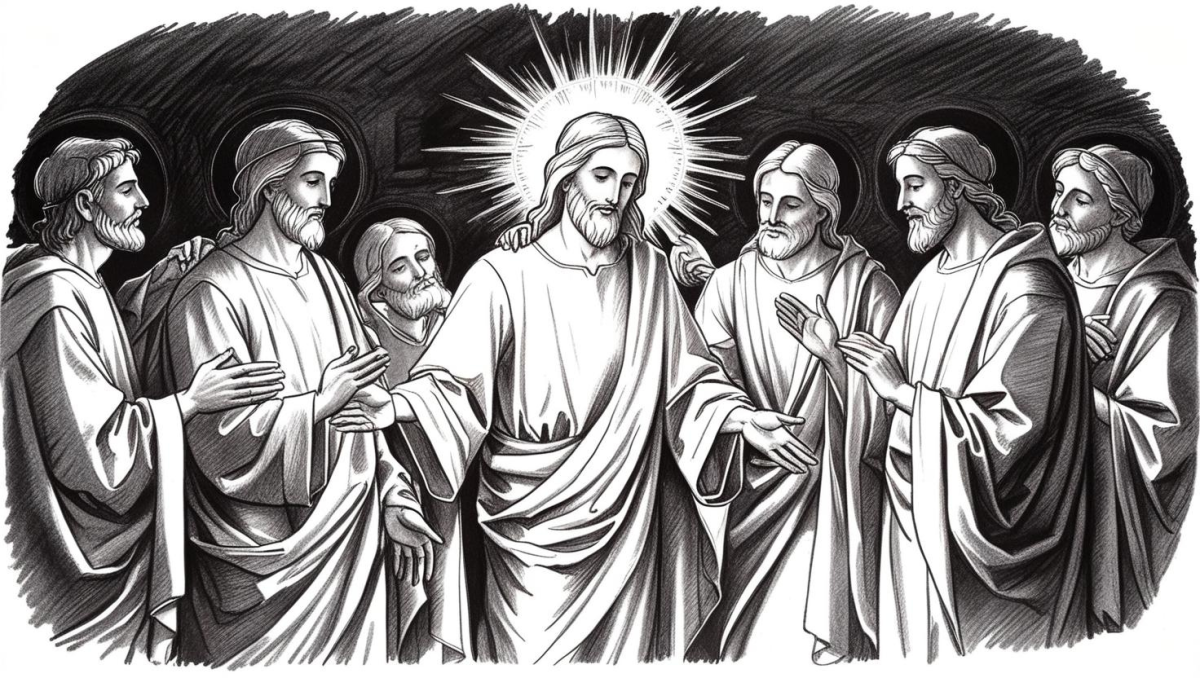 Good morning, dear readers. I am excited to connect with all of you once again as we gather to reflect upon a powerful message from John's Gospel, chapter 13, verses 34 to 35. These verses remind us of a new commandment from Jesus, urging us to love one another just as He has loved us. In doing so, the world will know we are His disciples.
Good morning, dear readers. I am excited to connect with all of you once again as we gather to reflect upon a powerful message from John's Gospel, chapter 13, verses 34 to 35. These verses remind us of a new commandment from Jesus, urging us to love one another just as He has loved us. In doing so, the world will know we are His disciples.
The Context of Love
In our Gospel reading today, we find ourselves in the intimate setting of the upper room, where Jesus shares His final meal with His disciples before His betrayal. It is a somber time, filled with anticipation and uncertainty about the future. In the midst of this gathering, Jesus performs the humble act of washing His disciples' feet. This gesture serves as a profound example of the selfless love He calls us to embody.
Navigating Life's Transitions
We've all faced moments of transition in life—times when we move from the familiar to the unknown. Whether it's the birth of a child, the loss of a loved one, marriage, or changes in our careers, these periods can be challenging. Yet, in these moments, we seek things that anchor us—our identity, values, and beliefs. Jesus provides us with this anchor through His commandment to love one another, offering us stability amidst life's uncertainties.
The Love of Jesus
The love Jesus speaks of is no ordinary love. It's not merely affection, but a profound, selfless act of serving others with empathy and humility. His love is unconditional and seeks the ultimate good for all of us. It's a transformative love, encouraging repentance and faith. This divine love, rooted in self-giving, distinguishes followers of Christ.
Challenges in Loving Like Christ
Despite the simplicity of this commandment, history shows us how difficult it is to truly love others as Christ loves us. We often become self-focused, distracted by our own lives, and lose sight of the needs of those around us. Our challenge is to look beyond our cultural, social, and economic lenses and embrace others with Christ-like love.
The Importance of Community
In the early days of Christianity, the apostles' love for one another was a beacon of light in the darkness. Their selfless acts drew others to them naturally, without the need for grand gestures. By living in genuine love and service, we too can attract others to the faith by our example.
Our Call to Love
As I reflect on Jesus' impending departure, I see the urgency in His message to His disciples—a message that is equally relevant to us today. We are called to embody the love of Jesus, caring for one another not out of obligation but because it is the essence of God's love. This kind of love is transformative for both us and the world around us.
Conclusion: A Call to Action
Friends, I encourage you to look at those in your life as gifts from God. Cherish these relationships and strive to love and serve each person, upholding their highest good. Remember, even our enemies are gifts, just as Jesus shared the table with Judas. May we pray for the wisdom, will, and strength to follow Jesus' example, glorifying our Savior through our selfless love.
Closing Prayer
Let us pray together: Almighty God, our Heavenly Father, whose son taught us that every service done for others' sake is done for Him. Give us the wisdom, the will, and the strength to be living examples of this truth that in serving one another, we may glorify Him who is our Savior and our Lord. Amen.
Posted on: May 11th, 2025 by St. Stephens Downsview
Hello everyone,
 It was a special time together this past Sunday, especially as we commemorated Mother’s Day. A very happy Mother’s Day indeed to all mothers and those who have served as mother figures in the lives of others. You are most welcome.
It was a special time together this past Sunday, especially as we commemorated Mother’s Day. A very happy Mother’s Day indeed to all mothers and those who have served as mother figures in the lives of others. You are most welcome.
During our gathering, I shared a piece of advice that I’ve found incredibly helpful, particularly when engaging with those who are new to the faith or who may not yet have faith. I can’t quite recall if I read it somewhere or if a friend told me, but the advice is this: If you ever have the opportunity to share the gospel with an unbeliever or someone new to the faith, the best place to begin is with the Gospel of John.
The main reason for this recommendation is that unlike the Gospels of Matthew, Mark, or Luke, which often provide a general survey or overview of Jesus’ life, the Gospel of John is written with a very specific teaching purpose. Its goal is to help readers become rooted and grounded in their faith and to be able to grow in that faith. John doesn’t offer a strict, chronological synopsis of Jesus’ life from beginning to end. Instead, he is very clear about his objective, stating it explicitly at the end of his account:
John writes, “Now Jesus did many other signs in the presence of his disciples, which are not written in this book.” He then adds, “But these are written so that you may come to believe, or may continue to believe, that Jesus is the Messiah, the Son of God, and that through believing, you will have life in his name.”
So, John wrote his gospel with the specific intention that the eyes of the unbeliever would be opened. And, having been opened, that they might then place their faith and trust in Jesus and continue to believe in him, so they could receive the fullness and abundance of the life that he freely gives.
In setting out his gospel, John selects what I refer to as seven signs. He calls them signs, and he chooses these specific seven with the intent of pointing his readers to the truth of Jesus’ identity as the Messiah. These signs help us understand who he is as we read through the account.
By the point we were reading in the Gospel of John, John has already described six of these seven signs. He has held up for us:
- The wedding feast in Cana of Galilee, where Jesus turned water into wine – the best wine they had ever had.
- Jesus’ healing of the royal official’s son from a distance, with the simple assurance of his word, “Go, your son will live”.
- The healing of the paralytic at the pool of Bethesda, who had been lying there for 38 long years. Jesus simply asked him if he wanted to be made well.
- The miraculous feeding of five thousand people with just five barley loaves and two fish. This reminded the people of God providing for the multitude in the wilderness with manna.
- Jesus walking on the water, coming to his disciples in the boat in the middle of the storm – the one whose voice the winds and waves still obey.
- In chapter nine, the account of Jesus opening the eyes of a man who was born blind. Jesus told him to go wash in the pool of Siloam, and when he washed and came back, he could see.
Jesus performed these deeds, signs, and many other wonders. They were for those who had eyes to see and ears to hear. These actions echoed the activity of God in Israel’s history and among them. They pointed, like signposts, to the fact that this Jesus was none other than the Messiah. We understand what a signpost is, right? If you’re going down the road, trying to reach a particular destination, especially somewhere unfamiliar, the signpost directs you. These miracles, these signs, point right to Jesus, saying, “If you want to find the Messiah, this is the way.”
And so Jesus’ whole life and the works he did in his father’s name were like visible words. They were like actions which spoke, and which spoke loudly, proclaiming clearly to all who would see and all who would hear that he was, in fact, the Messiah.
But in the passage we were looking at, the Jewish leaders surrounded Jesus in the temple. They were among those who refused to see or hear the testimony provided through Jesus’ own words and his actions. They wanted Jesus to speak plainly, to say outright, that he was the Son of God. However, their intention was not that they might believe, but that they might find grounds to condemn him and therefore put him to death.
They said to Jesus, “How long will you keep us in suspense? If you are the Messiah, tell us plainly.” Jesus’ response is insightful. He says, “I have told you, and you do not believe. The works that I do in my father’s name testify to me.” He then adds, “But you do not believe because you do not belong to my sheep.” He continues, “My sheep hear my voice; I know them, and they follow me.”
Friends, Jesus explained that his sheep hear his voice. That is, they hear God’s voice speaking to them through the words and actions of Jesus’ life. Jesus’ words and his actions – turning water into wine, healing the sick, feeding the five thousand, walking on water – these works spoke with a voice of their own, proclaiming and testifying to his identity as the Messiah. But because the religious leaders refused to humble themselves and come to him (unlike Nicodemus, who came under the cover of darkness, but still came), they could not hear the testimony. They couldn’t hear the voice speaking through his actions.
And friends, let me tell you, this still happens today. There are some who will pick up the scriptures and they’ll ask, “Okay, tell me where it says, ‘Here, Jesus said, I am God.'” Now, in a few places, you might be hard-pressed to find that exact phrasing. But my response has always been, “Tell me where it *doesn’t* say that Jesus is God!” Anyone who acts and speaks in the way that Jesus did, is *not* God? Then you have to give me a better explanation for how I might understand him. As C.S. Lewis argued, if he isn’t who he claimed, you’re left with other explanations like he was a lunatic or a liar.
But the reality is, as I sometimes see, there are none so blind as those who refuse to see. And by refusing to see, they are therefore easy to condemn because they are already hardened. And they do have a very sad place to be in this world when we put up these walls because we refuse to hear or see.
Jesus’ sheep hear his voice. That is, they hear God’s voice speaking to them through the words and indeed, the actions of Jesus’ life. And Jesus says, “I know them, and they follow me. I give them eternal life, and they will never perish; because no one will snatch them out of my hand.” What a wonderful promise to give us!
So, the first issue is seeing. This gospel story suggests to me that there are so many in this world for whom hearing God’s voice is made difficult because they refuse to see. That is, they have prematurely or indeed prejudicially rejected Jesus as God. And so they cannot hear the testimony that comes through the actions of his life. These actions will always mean something else to them; they will never point to the Messiah.
Now on another level, God’s work or his signs are not just gone cold and it didn’t happen back then right before our eyes. No, God, as he has made known to us in Jesus Christ, is as always and will always be at work in his creation, at work among his human creatures, proclaiming the truth of his presence in visible words that they can see and hear. As Romans says, his glory, who he is, has been made known so that we are all without excuse when it comes to the reality of God’s presence among us.
Within the Anglican tradition, we are situated in a space where those visible words are perhaps more readily perceived in our sacramental actions and things like Baptism, Confirmation, Holy Matrimony, and sharing the Communion in the solemnization of Holy Past the moment. But we see and hear them also from God’s activity in the prayers for the sick, the ministry of healing, and for those who are dying. God is at work. Visible words, like Jesus in his whole life, are proclaimed in those sacramental moments.
And so before we give way to the temptation to criticize the religious leaders of Jesus’ day in a negative way, I believe we always ought to ask ourselves first whether we have responded or are responding appropriately.
Are you hearing his voice speaking to you through the visible words of God’s activity among us? Are you following him as he leads? This means embracing the means God has provided for us to nourish us, to sustain us along this journey of faith. You know, sometimes we separate ourselves from these means, these visible words, and then we say, “Well, we don’t see them.”
So maybe we don’t gather for sacramental worship. Maybe we don’t pick up the scriptures to read. Maybe we don’t place ourselves where we can hear the word proclaimed. You can’t shut your eyes and then say, “Oh, I don’t see anything. There’s nothing else there.” It is easy to sit back and demand some clear sign and back and forth before we might decide to come and follow him and truly believe. But I think denying those kinds of signs is perhaps another way of mirroring their hardness of heart. And what God is not going to do and what God will do for us is what we will allow him to do for us.
Jesus grounds his grace in our paying attention to the visible words of God’s actions. So will you then come and continue in the promise of the Son of the Living God?
Posted on: May 4th, 2025 by St. Stephens Downsview
Introduction
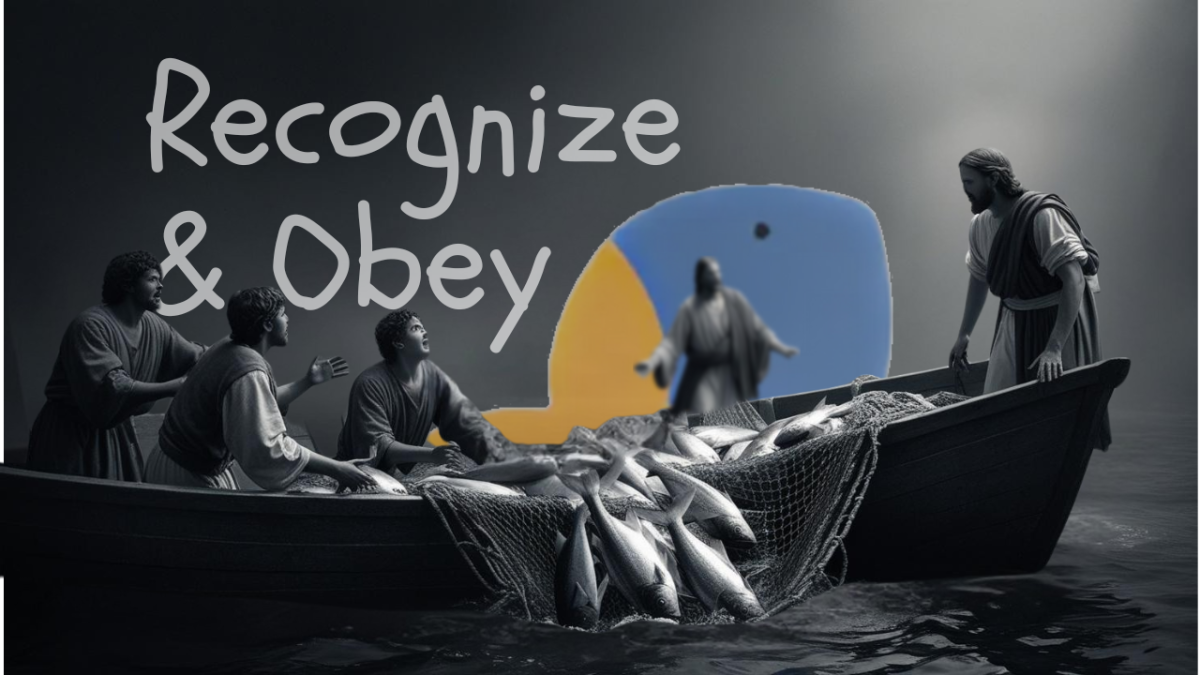 In today's reflection, I would like to explore some profound insights from John's Gospel, specifically chapter 21, verse 12. This passage offers a narrative where Jesus invites His disciples to "come and have breakfast." The disciples did not question His identity, as they already knew it was the Lord. This simple gesture of sharing breakfast holds deeper meanings about obedience, recognition, and the transformative power of faith.
In today's reflection, I would like to explore some profound insights from John's Gospel, specifically chapter 21, verse 12. This passage offers a narrative where Jesus invites His disciples to "come and have breakfast." The disciples did not question His identity, as they already knew it was the Lord. This simple gesture of sharing breakfast holds deeper meanings about obedience, recognition, and the transformative power of faith.
Reflecting on Cast the Net Initiative
Since late 2022, the Diocese of Toronto has been engaging with this passage through an initiative called "Cast the Net." This listening and visioning process has led to the formation of 20 aspirational and challenging calls, aiming to discern where God is leading us. Each congregation is encouraged to focus on two or three of these calls, specific to their community context.
Obedience and the Risen Lord
This initiative underscores our obedience to the risen Lord. It's about moving beyond our preconceived notions of how God should work. God's call often involves doing an old thing but in a new way, much like He instructed the disciples to cast their nets to the other side of the boat. The Risen Christ, whom we celebrate during Easter, is proclaimed as Lord of all creation. He continues to cross our implicit boundaries and challenges us to see His hand at work in unexpected ways.
Obedience Precedes Recognition
One of the central themes throughout scripture is the connection between obedience and recognition. The disciples' inability to initially recognize Jesus on the shore until they obeyed His command illustrates this pattern. Likewise, the story of Ananias in the Acts of the Apostles demonstrates how obedience can lead to new spiritual insight and sight.
Love and Obedience in Action
Jesus' interaction with Peter emphasizes that love for God cannot be separated from participation in His ongoing work. True love manifests in habitual obedience, even in unfavorable circumstances. Easter teaches us about recognizing God at work in our midst—not through physical sight but through spiritual understanding that comes from following Christ.
Conclusion
The written word of God becomes authoritative in our lives to the extent that the risen Word has claimed us. As we delve deeper into understanding our relationship with God, I invite you to reflect on how obedience and recognition play out in your own spiritual journey. Together, let us embrace the opportunities to see God at work, trusting and obeying His call with renewed vision and purpose. Amen.
Posted on: April 28th, 2025 by St. Stephens Downsview
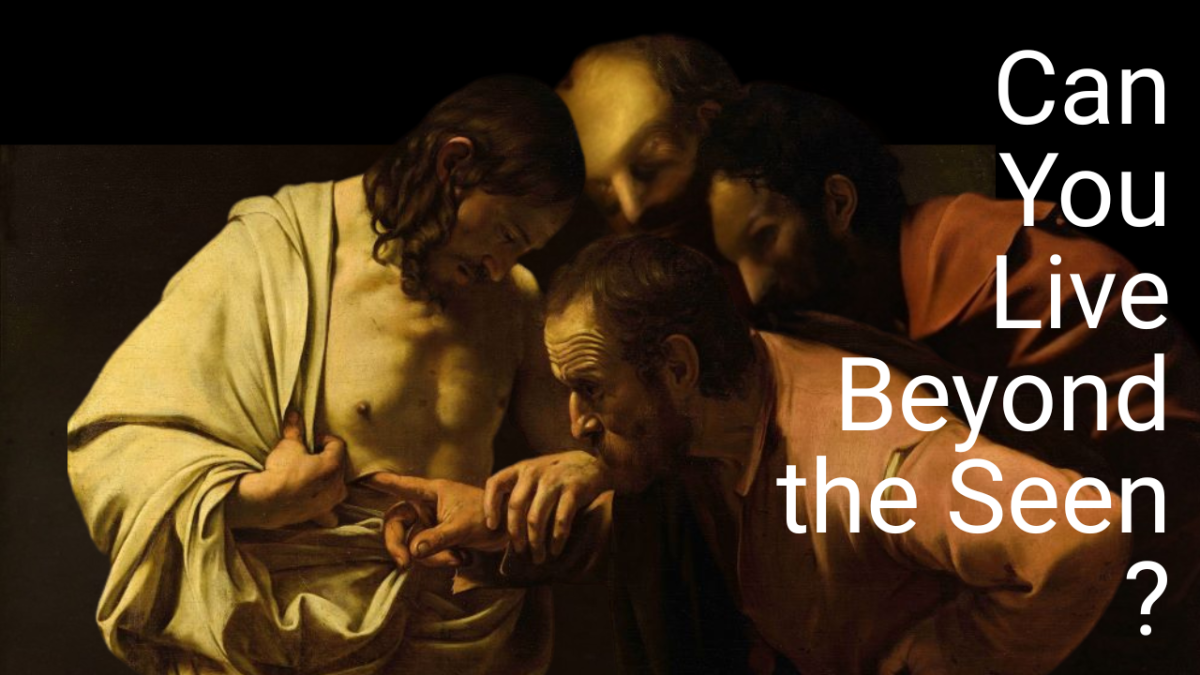 I want to share with you some profound insights from John’s Gospel, chapter 20, verse 29. Jesus said to Thomas, “Have you believed because you have seen me? Blessed are those who have not seen and yet have come to believe.” This passage opens a window into the spiritual journey from doubt to faith. Today, I invite you to explore this journey with me—a journey that challenges believers to live beyond what is immediately visible.
I want to share with you some profound insights from John’s Gospel, chapter 20, verse 29. Jesus said to Thomas, “Have you believed because you have seen me? Blessed are those who have not seen and yet have come to believe.” This passage opens a window into the spiritual journey from doubt to faith. Today, I invite you to explore this journey with me—a journey that challenges believers to live beyond what is immediately visible.
The Journey of Faith Begins
I want to begin by recounting the story of a young man whose journey in faith was ignited through a tearful conversation with a trusted Christian friend. His Christian journey, unbeknownst to him, had commenced long before this catalytic moment. Early that very day, he was moved by what he perceived to be God’s personal call: “Come and truly follow me.” That night, he found himself responding to this call on his knees. This transition from doubt to faith is one he would come to experience continuously, learning not to question whether Jesus is, indeed, Lord and God.
Thomas and His Moment of Revelation
In our Gospel reading, Thomas’s journey from doubt to faith took place over a week. Yet, like all believers, his faith was meant to grow ever more steadfast. On the evening when Christ first appeared to his disciples, Thomas was absent, doubting until he could see the evidence of Jesus’s wounds. Despite the brutality of Jesus’s death, what Thomas needed was that tangible proof, and Jesus, in His grace, provided it. Jesus met Thomas’s doubt, not out of obligation but out of mercy, to elicit faith from him.
This transformative encounter changed Thomas’s perspective forever. When Jesus appeared, not bound by locked doors, standing before him in His resurrected body, Thomas’s doubt melted into unequivocal belief, prompting his exclamation: “My Lord and my God.”
Reflecting on Our Own Journey
This journey from doubt to faith is one that speaks to many of us today. Standing with Thomas, waiting to be moved from doubt to faith, is a common position. Until we make that journey ourselves, we truly have not begun to live the resurrected life. The assurance that belief must transition from the mind to the heart is central to experiencing the life God offers abundantly.
Jesus’s words, “Blessed are those who have not seen and yet have come to believe,” carry a promise of blessing. True belief is dynamic, it involves movement and action. It’s not merely what we think but what we do with our faith that defines us.
Faith in Action
Our faith must not exist merely as a mental exercise or private belief. It is the root from which our actions stem. As James aptly puts it in his letter, faith without works is dead. True faith is demonstrated in how we live our lives daily.
This active faith points not to our capabilities, but to our confidence in God and His promises. When we recite the Apostles’ Creed, for instance, we are not merely professing words but affirming the God revealed as Father, Son, and Holy Spirit. Our confidence lies entirely in God, not ourselves.
The Call to True Belief
I urge you to contemplate whether you have embraced belief in Jesus, not just intellectually but with true conviction. The journey from doubt to faith is personal, one that requires engaging with others, absorbing wisdom, and embracing the community of believers.
Thomas teaches us to be open to the testimony of others and to receive Jesus as Lord. Through this, we receive new life and continue our journey of growing in faith and obedience.
Conclusion
Returning to the story of the young man, his faith journey marked a new chapter when the Risen Lord became real to him. It was a profound awakening to Jesus’s presence that had been with him all along. Is today the day for you to commence this journey? Or perhaps God is guiding you to share this profound journey with someone else in need.
Let us pray for guidance and strength, as we travel from doubt to faith in the light and love of the Risen Christ. Amen.
 Today’s reflection stems from a pivotal moment captured in St. Luke’s Gospel, chapter 10. We are drawn into the scene where Jesus appoints and sends out his disciples, marking a significant step in his ministry. This is more than just a historical account; it's a narrative that calls us into action and challenges us to understand our role as disciples in today’s world.
Today’s reflection stems from a pivotal moment captured in St. Luke’s Gospel, chapter 10. We are drawn into the scene where Jesus appoints and sends out his disciples, marking a significant step in his ministry. This is more than just a historical account; it's a narrative that calls us into action and challenges us to understand our role as disciples in today’s world.








